How often do three titles coalesce into a relatively coherent expression of the experience of reading them? I was going to call this review “Revisiting Pregnancy Narratives After Three Years of Motherhood” because something made me delve back into this topic almost exactly three years after the birth of my son, but somehow Nobody Told Me, After Birth, and Like a Mother was just perfect. Even (especially?) in its semi-coherence.
I feel blessed to live in an age where such a wealth of literature (fiction and non-) is being produced to counter some of the crap that our culture has converged around as our vision of motherhood. There are precursors, yes, and I’ve written about some of my favorite pregnancy books for writers previously, but Nobody Told Me, After Birth, and Like a Mother spoke hard to my mother self, writer or not, and I wanted to share why.
Nobody Told Me
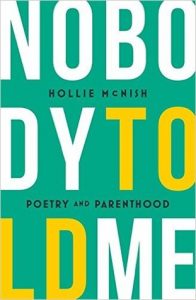 I’ll admit that when my husband gave Nobody Told Me by Hollie McNish for Mother’s Day “because it was on your to-read list” I had absolutely no memory of having ever heard of this book. While people did tell me I’d experience “pregnancy brain,” no one told me (that I remember anyway) my ability to retain information would be permanently altered (or at least that’s my experience so far).
I’ll admit that when my husband gave Nobody Told Me by Hollie McNish for Mother’s Day “because it was on your to-read list” I had absolutely no memory of having ever heard of this book. While people did tell me I’d experience “pregnancy brain,” no one told me (that I remember anyway) my ability to retain information would be permanently altered (or at least that’s my experience so far).
There were so many thing no one told me (and which I cannot remember) that reading McNish’s contemporaneous journal of her pregnancy and first three years of motherhood made me feel wonderfully immersed in that world again. Her voice is gently honest, and whether she’s recounting the everyday indignities (like having no one offer you a seat on the bus when you’re ginormous) or sweetnesses (“When no one is watching, I feel amazing. Like that gigantic, ripe, juicy magic peach”) you’re endeared to her (and, if you’ve been pregnant, to your own memories both good and bad). She’s also deeply generous to the people around her—taking the necessary moments to look at why her grandmother tries to spare her the “embarrassment” of walking around her village pregnant and unwed or when McNish takes pity on her father who is helpless around her child and examines why his generation of men is that way and all the things they’re missing as a result.
I loved that she included her (basically unedited I think) poems in this text, even though I did not always love the poems, because they made me love even more this huge body of work I created while pregnant that I’ve been somewhat embarrassed by (both because I’ve been adding a derogatory “mommy poetry” label to it and because I was new to poetry so a lot of it really isn’t good).
Whether credit goes to me for finding this book (which will be issued in the US this November) or to my husband for having the memory to get it into my hands, I don’t care. I’m just glad I read it and that I read it right now.
Like a Mother
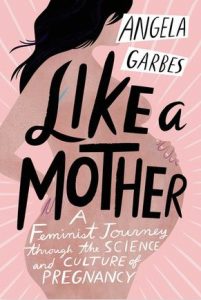 How strange and wonderful it felt to find Like a Mother: A Feminist Journey through the Science and Culture of Pregnancy in a newsletter for a local bookstore because Angela Garbes is a local author and though our worlds have not overlapped, I feel like our experiences have. There was not as much revolutionary science as I hoped in this book (partially because I did get to read Penny Simkin and some others who are trying to give pregnant women actual information while I was pregnant), but I still loved the book and I learned a lot of things. Most importantly I learned to trust my own experience.
How strange and wonderful it felt to find Like a Mother: A Feminist Journey through the Science and Culture of Pregnancy in a newsletter for a local bookstore because Angela Garbes is a local author and though our worlds have not overlapped, I feel like our experiences have. There was not as much revolutionary science as I hoped in this book (partially because I did get to read Penny Simkin and some others who are trying to give pregnant women actual information while I was pregnant), but I still loved the book and I learned a lot of things. Most importantly I learned to trust my own experience.
Garbes is witty and straightforward as she recounts the kinds of stories I have only ever shared with closely trusted family members (maybe I should be better about breaking the “nobody told me” cycle but I might let Garbes do it for me). From breastfeeding to sex to the importance of being cared for during pregnancy and birth, this book touched so many memories (and nerves) for me.
Through the gory (fascinating) details of the function of the placenta to the beauty of the ways that life and death coexist in a woman’s body as she carries with her forever the cells of motherhood, I felt grief while reading this book and I felt empowered. Most of all I felt normal, a sensation that is far too uncommon in these somewhat lonely days of parenting.
After Birth
 Though it was Garbes who wrote about how parents “lean into the utter obliteration of their previous selves,” it’s Elisa Albert who dives all the way into exploring that experience in her novel, After Birth. The thing I love most about this book (among many) is how deeply angry new mother Ari is. It’s something I’ve seen lambasted in reviews, which I understand because it’s directly in opposition to the sweet, loving acceptance we all want to think our mothers immediately felt when we were born, but it’s fucking real. Especially in a world where too many of us are too alone in this event that changes our lives completely.
Though it was Garbes who wrote about how parents “lean into the utter obliteration of their previous selves,” it’s Elisa Albert who dives all the way into exploring that experience in her novel, After Birth. The thing I love most about this book (among many) is how deeply angry new mother Ari is. It’s something I’ve seen lambasted in reviews, which I understand because it’s directly in opposition to the sweet, loving acceptance we all want to think our mothers immediately felt when we were born, but it’s fucking real. Especially in a world where too many of us are too alone in this event that changes our lives completely.
Ari grapples with a birth that did not go how she wanted it to (this is a euphemism because no one except other mothers really wants to even hear about shitty birth experiences), a body that’s irrevocably changed (torn apart), and a community that either does not or cannot meet her needs (in many cases because they aren’t even there). In short, it’s an all-too-familiar tale, but one that many women suffer in silence. I loved how angry Ari was because anger is the last thing we want moms to express and yet it’s a very real emotion (and one that doesn’t get better if we don’t feel entitled to even feel it).
After Birth can be as uncomfortable to read as the title is to imagine. It’s also funny and dark and real and I want all of my friends to read it and then I want us to say, collectively, all the taboo things about parenting REALLY FUCKING LOUD.
If you want to get real about pregnancy and early parenting, pick up a copy of Nobody Told Me, Like a Mother, and After Birth from Bookshop.org. Your purchase keeps indie booksellers in business and I receive a commission.
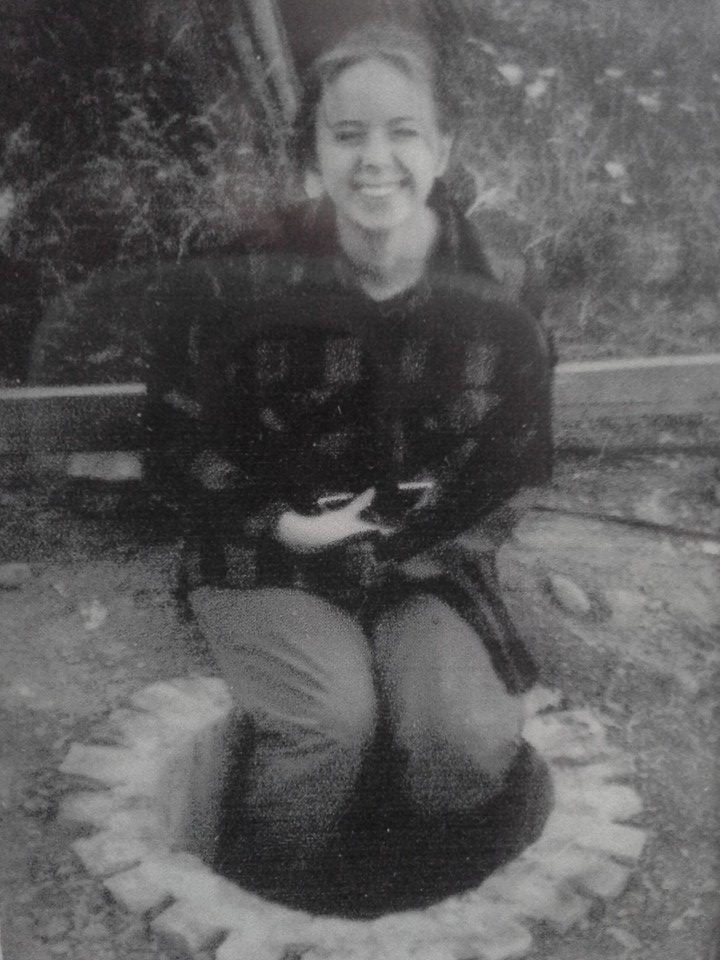
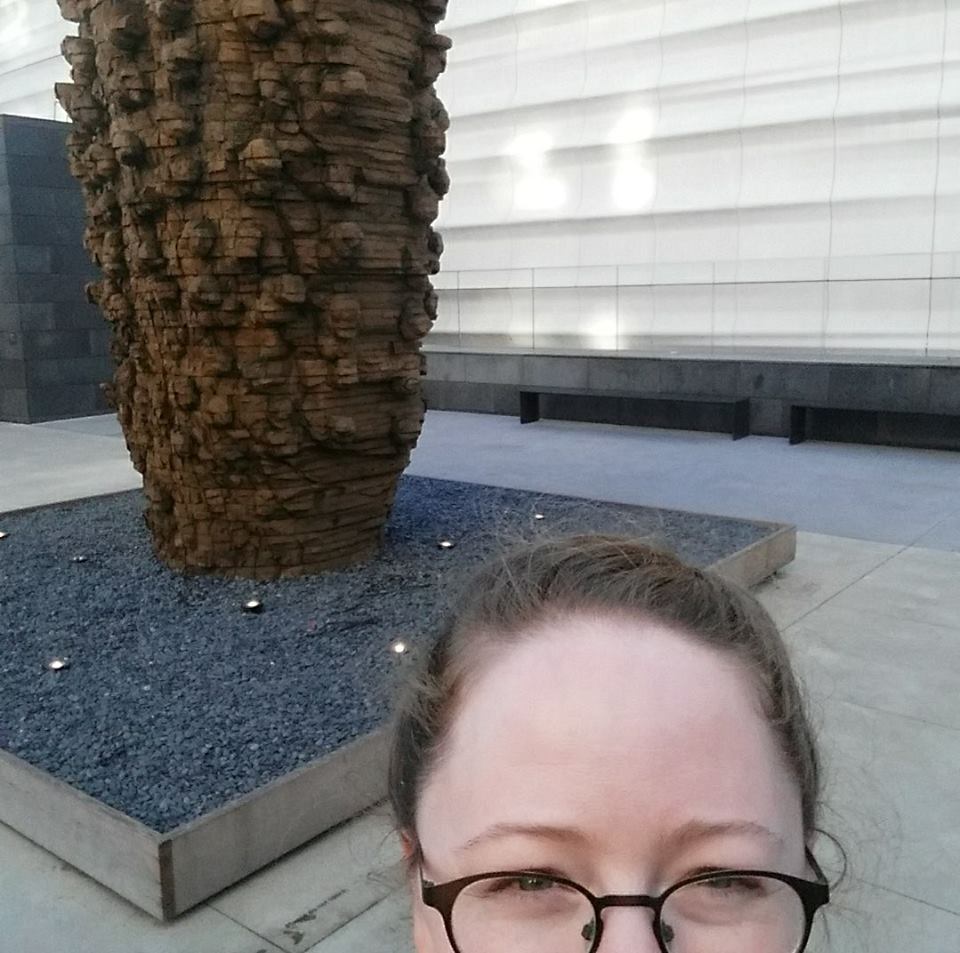
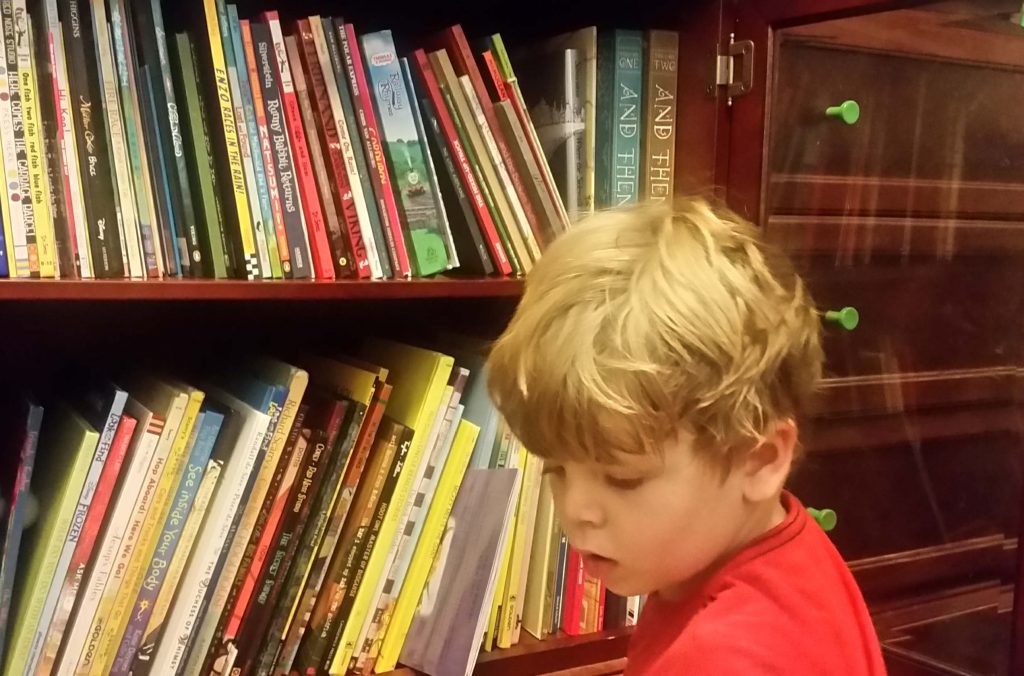 Every night my son gets to choose a bedtime book from his vast library—a library I’ve very carefully built to represent a world larger than he’s been exposed to so far. He’s a beautiful, bright, curious little white boy who spends a significant amount of his time in a class that’s 95% other white boys and I want him to know there’s more to the world. I can’t change the makeup of his class, but I can bring a wide variety of colors and cultures into our home and introduce him to some awesome female figures along the way. And I thought I was doing a pretty good job, but the other night he confused Love Is for Come on Rain (the only two stories on his shelves that star African American girls) and I realized I might have fallen into the trap of tokenism.
Every night my son gets to choose a bedtime book from his vast library—a library I’ve very carefully built to represent a world larger than he’s been exposed to so far. He’s a beautiful, bright, curious little white boy who spends a significant amount of his time in a class that’s 95% other white boys and I want him to know there’s more to the world. I can’t change the makeup of his class, but I can bring a wide variety of colors and cultures into our home and introduce him to some awesome female figures along the way. And I thought I was doing a pretty good job, but the other night he confused Love Is for Come on Rain (the only two stories on his shelves that star African American girls) and I realized I might have fallen into the trap of tokenism. 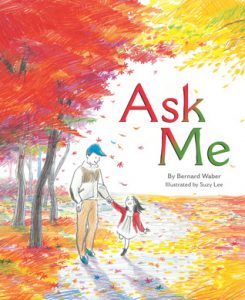 I looked at the gender and race of main characters and also the gender and race of each book’s author and illustrator. It wasn’t an exact science—I found myself making some assumptions about both race and gender (some of which I was later able to clarify) and the counts are a little iffy (you try wresting a little boy’s books from his grasp) but the patterns are clear and I’m so glad I went through this exercise, because I learned a lot.
I looked at the gender and race of main characters and also the gender and race of each book’s author and illustrator. It wasn’t an exact science—I found myself making some assumptions about both race and gender (some of which I was later able to clarify) and the counts are a little iffy (you try wresting a little boy’s books from his grasp) but the patterns are clear and I’m so glad I went through this exercise, because I learned a lot. 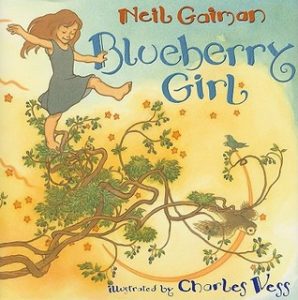 My favorite thing about this table is the “Many” category which I had to scrawl into a margin because of three books: Blueberry Girl by Neil Gaiman and Charles Vess (where the main character shifts race and appearance throughout the book), Love by Matt de la Peña and Loren Long (where technically “love” could be the main character but the rest of the book is so representative of so many lived experiences, it deserves massive credit) and Peace Begins with You by Katherine Scholes that follows a similar pattern.
My favorite thing about this table is the “Many” category which I had to scrawl into a margin because of three books: Blueberry Girl by Neil Gaiman and Charles Vess (where the main character shifts race and appearance throughout the book), Love by Matt de la Peña and Loren Long (where technically “love” could be the main character but the rest of the book is so representative of so many lived experiences, it deserves massive credit) and Peace Begins with You by Katherine Scholes that follows a similar pattern. 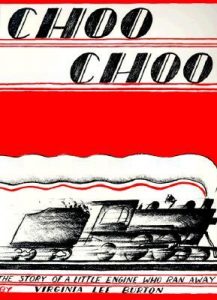 I was surprised to discover just how many books we read that feature non-human characters. Unfortunately, the default gender for animal and vehicle characters seems to be male. Some of this is due to the English reversion to “he” as a generic pronoun (read: patriarchy) but some of it is just laziness.
I was surprised to discover just how many books we read that feature non-human characters. Unfortunately, the default gender for animal and vehicle characters seems to be male. Some of this is due to the English reversion to “he” as a generic pronoun (read: patriarchy) but some of it is just laziness.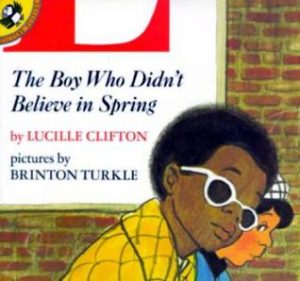 So the fact that almost all of the authors my son has been exposed to are white is a fail on my part. I can name the one Black author—Lucille Clifton—and the excellence of The Boy Who Didn’t Believe in Spring is argument enough for actively seeking out more diverse voices. It’s a gorgeous book that gets to the heart of male friendship better than anything else I’ve read.
So the fact that almost all of the authors my son has been exposed to are white is a fail on my part. I can name the one Black author—Lucille Clifton—and the excellence of The Boy Who Didn’t Believe in Spring is argument enough for actively seeking out more diverse voices. It’s a gorgeous book that gets to the heart of male friendship better than anything else I’ve read.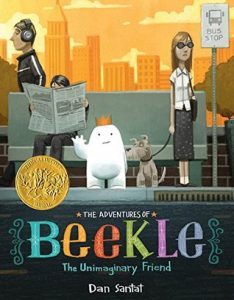 Can I admit yet that I’m starting to feel a little demoralized? How can I not have one single book in my son’s collection that’s illustrated by an African American? And that this category is looking very white overall. The same note from above about Suzy Lee, Dan Santat and Shaun Tan still applies—fantastic illustrators that I might have overemphasized in my son’s collection.
Can I admit yet that I’m starting to feel a little demoralized? How can I not have one single book in my son’s collection that’s illustrated by an African American? And that this category is looking very white overall. The same note from above about Suzy Lee, Dan Santat and Shaun Tan still applies—fantastic illustrators that I might have overemphasized in my son’s collection.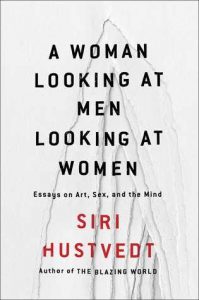 I’ve long admired Hustvedt’s writing and was very excited when A Woman Looking at Men Looking at Women arrived in time for a lengthy convalescence earlier this week. But the best thing I did for myself was to not read all 500 pages in one go. Instead, I’m going to savor her signature intelligence. So far I’ve read about the differences in modes of knowing between scientists and artists and the contextual coding (and unconscious bias) in how we view art which has led me to question everything about how I encounter arts of all kinds and to better appreciate the instinctual approach to my work that’s been evolving over the last decade.
I’ve long admired Hustvedt’s writing and was very excited when A Woman Looking at Men Looking at Women arrived in time for a lengthy convalescence earlier this week. But the best thing I did for myself was to not read all 500 pages in one go. Instead, I’m going to savor her signature intelligence. So far I’ve read about the differences in modes of knowing between scientists and artists and the contextual coding (and unconscious bias) in how we view art which has led me to question everything about how I encounter arts of all kinds and to better appreciate the instinctual approach to my work that’s been evolving over the last decade.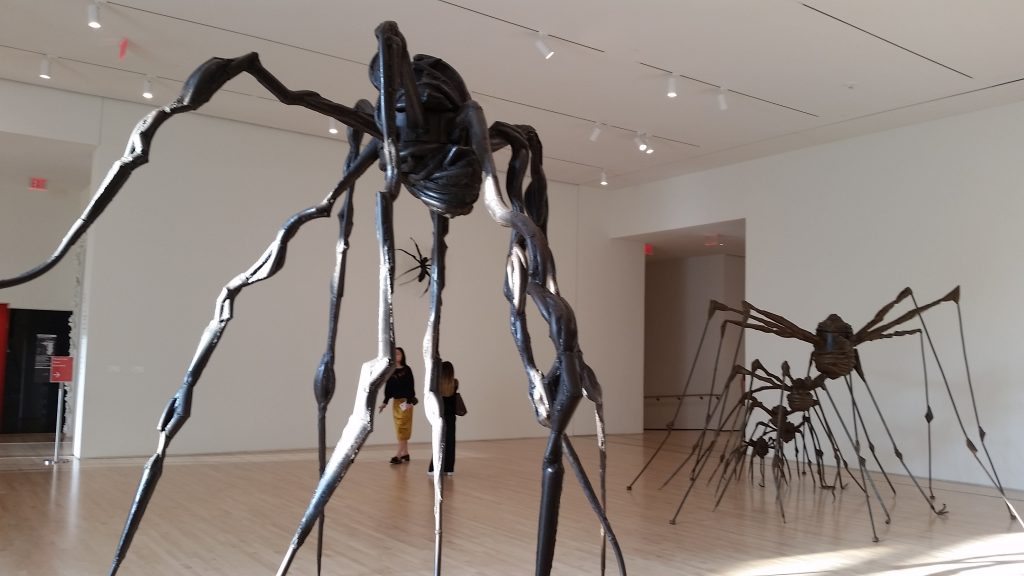
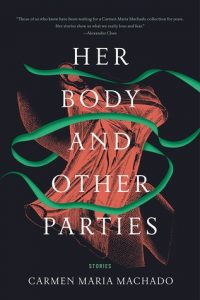 If you haven’t already read “
If you haven’t already read “ Another writer who demolishes the prejudicial line between “genre” and “literary” fiction is Paige Cooper. The stories in Zolitude are dense, rich, and wildly intelligent. This is not a bedtime book (trust me), not only because of the often chilling plotlines, but because you won’t want to miss a single detail of Cooper’s intricately crafted stories lest you discover, too late, that the women you’re reading about have become animals (or that they always were).
Another writer who demolishes the prejudicial line between “genre” and “literary” fiction is Paige Cooper. The stories in Zolitude are dense, rich, and wildly intelligent. This is not a bedtime book (trust me), not only because of the often chilling plotlines, but because you won’t want to miss a single detail of Cooper’s intricately crafted stories lest you discover, too late, that the women you’re reading about have become animals (or that they always were).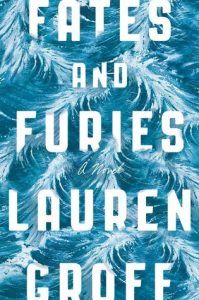 Sick this weekend and more than a little desperate to read something that would not further irritate my fevered brain, I pulled Fates and Furies by Lauren Groff from my to-read shelf. Though I cursed Groff when I could not put down the book to fall into a much-needed nap, something I should have expected because her earlier novel Arcadia had kept me up at night, I was also grateful because it’s been too long since a full-length novel incited me to read with such hunger. I even skimmed the last sixty pages as my husband read to my son in the other room—hoping with each new section break that they’d go through one more round of exploring darkest Peru so I could live inside this book until the very end. Fates and Furies also got my brain moving on some topics I care deeply about: marriage, the myth of the lone genius, and Greek mythology.
Sick this weekend and more than a little desperate to read something that would not further irritate my fevered brain, I pulled Fates and Furies by Lauren Groff from my to-read shelf. Though I cursed Groff when I could not put down the book to fall into a much-needed nap, something I should have expected because her earlier novel Arcadia had kept me up at night, I was also grateful because it’s been too long since a full-length novel incited me to read with such hunger. I even skimmed the last sixty pages as my husband read to my son in the other room—hoping with each new section break that they’d go through one more round of exploring darkest Peru so I could live inside this book until the very end. Fates and Furies also got my brain moving on some topics I care deeply about: marriage, the myth of the lone genius, and Greek mythology.